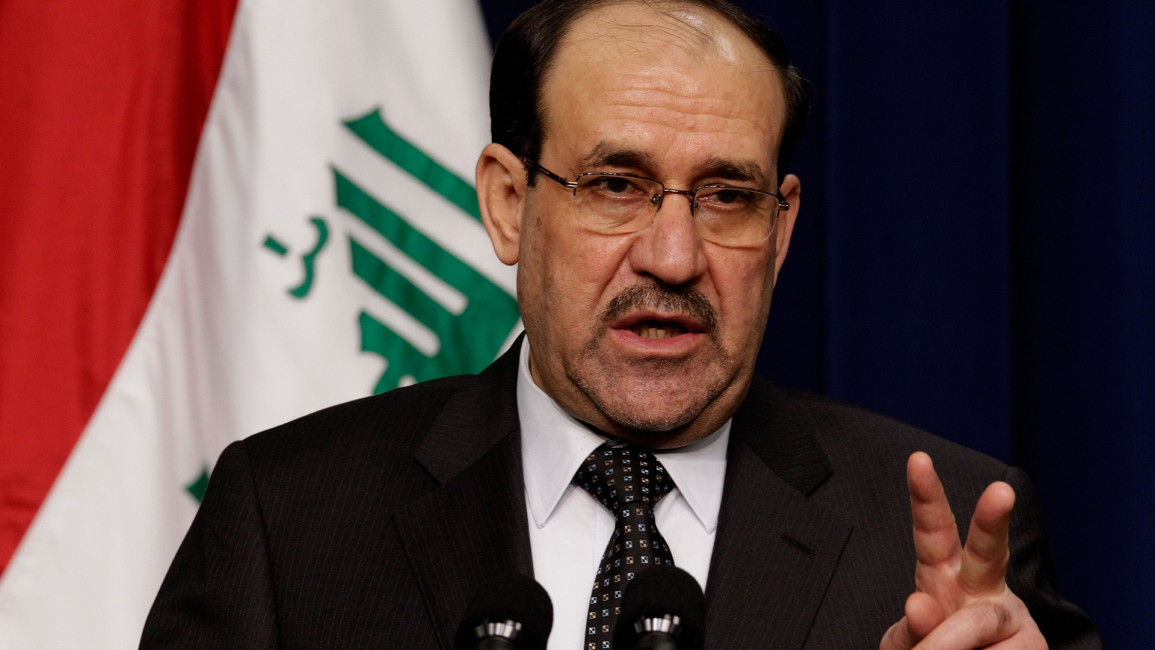Maliki may face probe into fall of Mosul
The Iraqi parliament will hold an enquiry into the army’s capitulation in the face of advancing IS fighters last June, Hakem al-Zamli a member of the parliament's Security and Defence Committee has said.
Officials will aim to identify and hold to account those responsible for the fall of the governorate, Zamli told al-Araby al-Jadeed.
The focus of the investigation will be on the role played by senior army commanders [Ar] and local government representatives based in the city at the time.
“The investigation will include Joint Operations Commander Lieutenant General Abboud Qanbar, Ground Forces Commander Lieutenant General Ali Ghaidan, and Commander of Nineveh Operations Lieutenant General Mahdi al-Gharrawi,” the Iraqi lawmaker explained.
Zamli added that former Iraqi Prime Minister Nuri al-Maliki who was also the Commander in Chief o fthe armed forces, would also be investigated should that be necessary.
He warned that officers who fled Iraq and are now based abroad will also be held to acount.
“Summons will be issued against officers now based outside Iraq with Interpol's assistance,” he added.
| The recent crisis in Iraq has exposed the military’s weaknesses. |
A source earlier confirmed to al-Araby that Iraq's new prime minister Haider al-Abadi had vowed [Ar] to punish any official involved in crimes that caused the deaths of Iraqis.
Abadi stressed no one would be immune from legal accountability.
Babacar Zebari, the army's chief fo staff has placed the ultimate responsibility the fall of the country’s second largest city squarely on the former prime minister's shoulders.
Zebari accused Maliki of ignoring a request from Kurdish leaders asking him to lunch a strike against Islamic State (IS) forces on the outskirts of Mosul, prior to its fall in the hands of the militants.
Commander of Nineveh Operations Mahdi al-Gharrawi said he and his forces did not retreat and fought the advancing IS troops, until fiought IS to fight until the army was ordered to retreat, by Maliki, Ghaidan, and Qanbar.
Gharrawi is now waiting to hear if he will have to face a military tribunal.
If found guilty he could receive the death sentence.
The recent crisis in Iraq has exposed the weaknesses of the army, which was the fifth largest in the world before being dissolved after the US-led invasion of Iraq in 2003.
The fall of Mosul represent one of the most disastrous setbacks in the history of the Iraqi armed forces.
Ghaidan, Qanbar, and Gharrawi and other senior army officers who fled the battlefield before their troops when IS entered Mosul, have since disappeared from public view.
This article is an edited translation from our Arabic edition.



